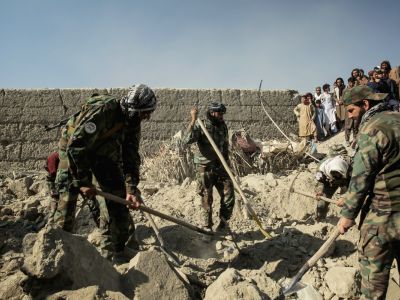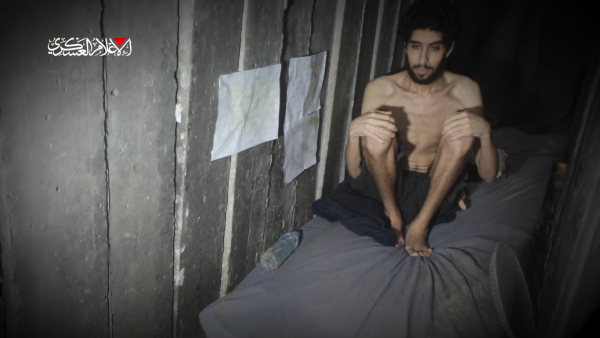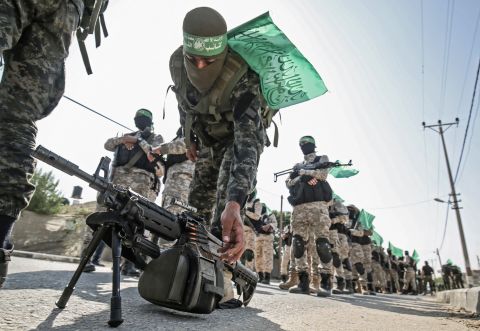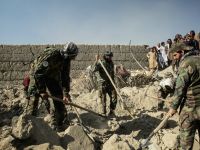ALBAWABA - The International Committee of the Red Cross (ICRC) has been officially asked by Israeli Prime Minister Benjamin Netanyahu to help Israeli prisoners being held in Gaza by getting them food and medical care right away.
This was done after troubling video footage showed that the prisoners' health was getting worse, especially the hostages Avitar David and Rom Braslavsky, who looked like they were seriously starved because of Gaza's growing humanitarian crisis.
Netanyahu asked Julian Lirisson, who is in charge of the ICRC in Israel and the Palestinian areas, to let the prisoners be helped right away. He said that Hamas was behind a worldwide effort to spread false information about hunger in Gaza, saying that "our hostages are actually starving because they are being brutally abused physically and mentally."
But quickly, Al-Qassam Brigades, the armed branch of Hamas, said through Abu Ubaida that they were ready to let the Red Cross deliver aid to the Israeli hostages—as long as Israel agreed to permanently open humanitarian corridors and stop attacking from the air while the aid was being delivered.
Abu Ubaida made it clear that the prisoners are not being intentionally starved, but are simply living in the same difficult conditions as Hamas soldiers and the rest of the Palestinian people. "They eat what our fighters and people eat," he said, making it clear that the resistance would not give special treatment to them while more than two million people in Gaza are under lockdown.
The statement also said that Israel's constant bombings and failure to allow regular entry for humanitarian groups have made things worse in Gaza and made it harder to help.
Families want a deal.
Families of the hostages protested in Tel Aviv and asked the Netanyahu government to quickly come up with a way for their loved ones to be freed. The families were furious that the government had kept up the war and not been able to free the hostages, calling promises of a military answer a "deceptive illusion."
Israeli media say that a lot of family members think that the only way to move forward is to negotiate a full exchange deal that stops the war and gets the prisoners home.
Israel thinks that about 50 of its people are still being held captive in Gaza, and that about 20 of them are still living. Meanwhile, more than 10,800 Palestinians are being held in Israeli jails, where they are said to be tortured, starved, and not getting enough medical care. Many of them have died, according to reports from Palestinian and Israeli rights groups.
Negotiations Held Up and Hamas's Offer
Recent talks in Doha, which were handled by Qatar and Egypt and backed by the U.S., fell apart because Israel wouldn't change its mind about wanting to keep troops in Gaza, wouldn't end the war, and wouldn't accept key relief supplies.
Hamas has said again that it is ready to free all Israeli hostages at once, but only if there is an end to the fighting, Israel leaves Gaza, and Palestinian prisoners are freed. But Netanyahu has kept adding new conditions, like silencing Palestinian groups and reclaiming control over Gaza, which make any possible deal even less likely.
As pressure builds up at home and around the world, the humanitarian situation keeps getting worse. Hostages and bystanders are taking the brunt of the long-running war.












